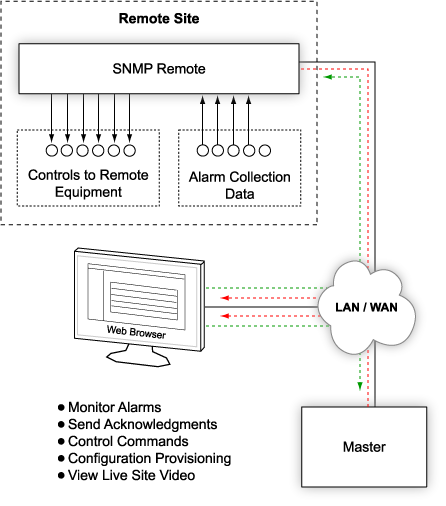Download our free SNMP White Paper. Featuring SNMP Expert Marshall DenHartog.
This guidebook has been created to give you the information you need to successfully implement SNMP-based alarm monitoring in your network.
1-800-693-0351
Have a specific question? Ask our team of expert engineers and get a specific answer!
Sign up for the next DPS Factory Training!

Whether you're new to our equipment or you've used it for years, DPS factory training is the best way to get more from your monitoring.
Reserve Your Seat TodayT/Mon NOC: Full-featured alarm master for up to 1 million alarm points. Features support for 25 protocols, protocol mediation, alarm forwarding, pager and e-mail alarm notification, Web Browser access, multi-user access, standing alarm list, alarm history logging. Available SNMP software:
T/MonXM SNMP Agent Software Module: Forwards T/Mon alarms in SNMP.
T/MonXM SNMP Trap Processor Software Module: Receives SNMP traps; displays as standard T/Mon alarms.
T/Mon NOC LT: Light capacity SNMP-only alarm master. Supports SNMP Trap Processor software module, up to 10 SNMP devices, and up to 20 DPS Telecom remotes. Features pager and e-mail alarm notification, Web Browser access, standing alarm list and alarm history logging.
NetGuardian 832A: RTU monitors 32 alarm points, 8 analog inputs, 8 control relays, 32 ping targets, 8 terminal server ports; reports in SNMP.

NetGuardian 216: RTU monitors 16 alarm points, 2 analog inputs, 2 control relays, 1 terminal server port; reports in SNMP.
NetGuardian 480: RTU monitors 80 alarm points, 4 control relays; reports in SNMP.
NetMediator T2S: Protocol mediator converts 8 TBOS ports, 32 alarm points, and 8 analog inputs to SNMP; 8 control relays, 4 terminal server ports.
Remote Alarm Block 176N: Wire-wrap alarm block monitors 176 alarm points, 4 controls; reports in SNMP.

A Web browser interface lets you view and acknowledge alarms from any computer on your network. You're not tied to proprietary monitoring consoles to control your system, supervisors have instant access to monitoring information from their desktops, and it's easy to rotate monitoring staff at different locations.
Both your SNMP remote and your master can independently support a Web Browser interface, giving you redundant access to your remote site. If your master is down you can use the Web Browser interface to connect directly to your SNMP remote.
In addition to helpful content regarding snmp legacy integration, view the full collection of Network Monitoring White Papers from DPS. These guides help you learn specific protocols and solve specific problems. They're compact and nothing like a textbook. You can learn what you need in less than 30 minutes.